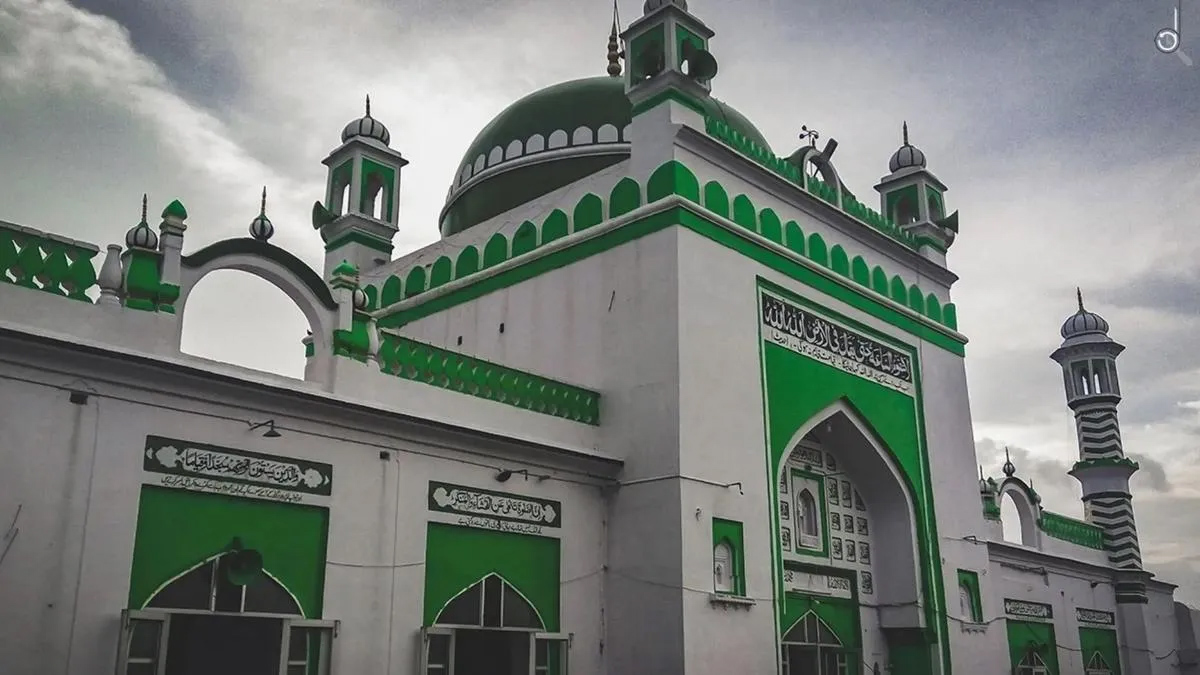Sushil Kutty
Five residents of Sambhal, who were alive as recently as November 24, have now succumbed to gunshot injuries amid clashes in western Uttar Pradesh sparked by a mosque-mandir controversy. The mandir in question is associated with ‘Bhagwan Kalki,’ believed to be the next avatar of Lord Vishnu, known as Shri Hari Har Mandir. However, this violence cannot simply be termed as ‘danga,’ a term often used by Hindi news anchors to describe all disturbances in Muslim-majority areas of India.
These were not riots, referred to as ‘danga’ in Hindi, nor were they purely ‘Hindu-Muslim’ conflicts. The Hindu community had no involvement in this case unless one considers ‘Bhagwan Kalki’ as representative of Hindu identity. Historically, none of the 33 or 36 million Hindu deities have publicly claimed divinity or distinctiveness, setting them apart from gods.
The upheaval in Sambhal chiefly involved local Muslim youth—young men and two women, who are currently in police custody—throwing stones at law enforcement officers dispatched to safeguard a team of ASI surveyors. This team was investigating whether a temple was located beneath the mosque, but the young Muslim community opposed this inquiry.
Upon the police’s arrival, accompanying the surveyors, it became evident that the local youth were aware of the police’s intentions, or rather the purpose of the survey. The subsequent events seem to validate police assertions that the youth had premeditated hostilities against the surveyors, having recognized the urgency of completing the survey by the court-set deadline of November 29.
The police’s provision of security for the surveyors cannot be criticized, especially given that Congress MP and Leader of Opposition in the Lok Sabha, Rahul Gandhi, has heavily criticized the Yogi Adityanath administration. Visuals from Sambhal depict the chaotic remnants of broken, red bricks scattered across the area.
This phenomenon, often referred to as brick-batting, has become a channel for the local Muslim youth to express their fury towards law enforcement, steering away from a Hindu-Muslim ‘danga’. Bricks can inflict pain, cause injuries, and even lead to fatalities. Footage from Sambhal revealed police admonishing the youth, urging them not to be provoked by their leaders.
The police shouted into megaphones, instructing the agitated youth to disperse repeatedly, but their words fell on deaf ears. Allegations soon circulated that gunfire erupted, resulting in multiple casualties.
After the tumult subsided, a reporter roamed the debris-littered streets, reporting five fatalities. The haunting cries of a mother mourning her son, who died from a gunshot wound to the head, filled the air.
“He wasn’t participating in the violence,” the grieving mother insisted. “He had just gone to the market… his ‘Bullet’ is still parked there, they shot him,” she lamented while a photo of a young man sprawled on the brick-strewn entrance of an alley recounted a tragic tale.
But was this individual the same as her son? There were no signs of a motorbike or a market nearby. The deceased wore blue jeans held up by a brown belt, along with an olive-green T-shirt and leather shoes.
The Sachar Committee report highlighted the poverty afflicting Muslim youth in impoverished areas, but the lifeless body of the young man did not reflect mere economic hardship.
Rahul Gandhi has sharply criticized the Yogi Adityanath-led government, holding them responsible for the outbreak of violence in these “clashes.” However, these were incidents characterized by Muslim youth directing stones and gunfire at relatively restrained police forces.
Rahul Gandhi accused the BJP government of using police to instigate divisions between Hindu and Muslim communities. “The state government’s biased and hurried response to the recent events in Sambhal is profoundly unfortunate. My heartfelt condolences go out to those who have suffered losses due to the violence and gunfire,” he stated. “The administration’s insensitivity to all parties involved further aggravated the tension, making the BJP government directly accountable.”
In a last-ditch effort, Rahul Gandhi has requested the Supreme Court’s urgent intervention to secure justice for Muslims caught in this repeat of historical mosque/mandir disputes. “The BJP’s manipulation of power to foster division and discrimination between communities is detrimental to both the state and the country. I urge the Supreme Court to act swiftly to provide justice.”
Recently, Rahul Gandhi appeared more focused on campaigning for his sister Priyanka Gandhi Vadra in Wayanad, neglecting the political landscape in Uttar Pradesh. The Congress party did not participate in any of the nine UP by-elections, leaving the stage open for the Samajwadi Party led by Akhilesh Yadav, who also succeeded in Wayanad.
“I implore everyone to maintain peace and promote harmony among communities. We must unite to ensure India advances on a path of unity and constitutional values, rather than succumbing to communalism and hatred,” Rahul Gandhi remarked, uncertain of how this message would resonate with the people of Uttar Pradesh, especially its Muslim citizens. The violence in Sambhal serves as a cautionary tale for the INDI-Alliance following the Samajwadi Party’s recent defeat in the by-elections.
A prevailing theory in political circles posits that the Sambhal disturbances are rooted in the discord between two Muslim sects, one aligned with “Turkey” and the other with “India.” The Turkish faction is represented by Samajwadi Party MP Zia ur Rahman Barq, who attributes the Samajwadi Party’s poor electoral performance to the “India” Muslims.
The loss of life during these violent episodes over the Jama Masjid survey is particularly alarming. Over 20 policemen sustained injuries, and several police vehicles were set ablaze; the stoning brought memories of pre-Article 370 Jammu & Kashmir. The Kashmir issue remains a lasting wound, alongside the protracted Ram Mandir conflict that lasted over 500 years. With Bhagwan Kalki awaiting his turn, only Bhagwan Ram can discern how long it will take to settle this dispute! (IPA)


Leave a Reply